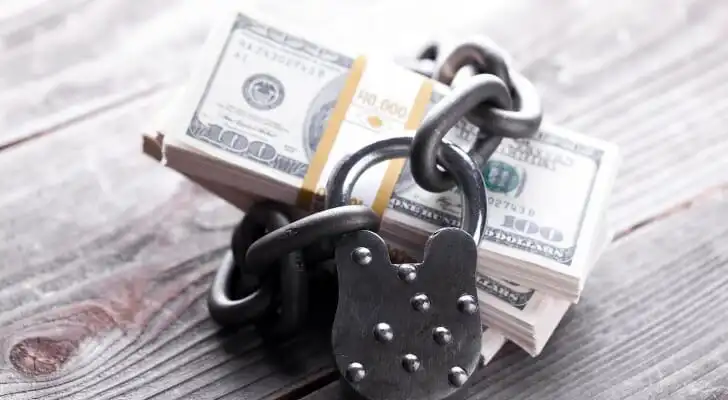If you’re looking for ways to diversify your investment portfolio, callable certificates of deposit (CD) can allow you to invest your money for several years with a guaranteed interest rate in an FDIC-insured account. But, the issuer of your callable CD has the option of closing the account before it matures, stunting the earnings you planned on receiving for a set amount of years. Like every other investment, a callable CD has advantages and disadvantages that determine how well it will fit into your financial plan. Working with a financial advisor can give you the guidance you may need to choose the right portfolio diversification.
What Is a Callable Certificate of Deposit (CD)?
A callable certificate of deposit (CD) is a type of investment that pays more interest but presents more risk than a traditional CD. When you purchase a callable CD, the CD’s issuer (usually a bank or other financial institution) guarantees the investor a higher interest rate in exchange for the option to return the principal and interest to you, or “call” the CD, before it matures. The call option exists in case market interest rates decrease, allowing the bank to close the CD early and avoid paying investors a higher interest rate.
You can open a callable CD at a bank or credit union. Like other CDs, the Federal Deposit Insurance Corporation (FDIC) and the National Credit Union Administration (NCUA) insure callable CDs for up to $250,000, protecting your money if the financial institution you invest with fails.
How a Callable CD Works
Callable CDs earn investors more interest than standard CDs but also have the chance of ending before their maturity date. This can be anywhere from a couple of years to a few decades.
The CD issuer can call a CD on its call dates, which usually occur every six months from the day the investor opens the CD. Thus, every six months, the bank decides whether to return the principal and interest of your CD or allow it to stay for another six months so you can earn more interest. If your CD issuer thinks it can offer CDs with lower interest rates, it will likely return your callable CD. After you receive your principal and earned interest, you can decide how to reinvest your money.
Callable CD Example
Let’s say you open a callable CD with a bank at a 5% interest rate. The CD will mature in three years, and the call date occurs every six months. As a result, you will not have access to your money for three years unless the bank calls the CD before that.
Six months pass and interest rates don’t change significantly, so the bank decides to continue holding your CD. After nine months, interest rates have fallen 2%, but the next call date is still three months away, so the bank has to wait to call your CD. At the twelve-month mark, interest rates remain lower, so the bank returns the principal and interest of your CD.
In this example, your callable CD earned you 5% interest for a year before the issuer closed the CD. The higher risk earned you more interest than a regular CD, but the account closed before reaching maturity, meaning you have to decide how to reinvest your money sooner than you may have expected.
Key Considerations for Callable CDs

Callable CDs contain call premiums, which are a percentage of the CD’s face value and benefit the investor. A call premium is an additional fee that the CD issuer pays you if your CD is returned before it matures. The bank will pay you this percentage, as well as the interest your investment has earned thus far.
Your CD’s call premium decreases as it nears maturity. Therefore, a callable CD that the issuer closes after six months will pay a higher call premium than a CD that the issuer closes after two or three years. When you shop for callable CDs, ask about the call premium, as it adds to the revenue your CD will earn.
The callable feature makes for a slightly more volatile investment. Although your callable CD is insured, your possible future earnings are not. This means that a five-year CD that your bank calls after one year will not earn you interest for the remaining four years.
Therefore, a returned CD might impact your ability to stick to your financial plan and hit financial goals. Consequently, if you open a callable CD, it is a good idea to plan how to reinvest the money to provide a similar return in case the bank closes the account early.
Pros of a Callable CD
The biggest advantages of investing in a callable certificate of deposit are:
- Increased APY: Due to increased risk, callable CDs give you better interest rates than traditional CDs, which means a higher return on investment.
- Stability: Though the bank might return your callable CD early, it cannot change your interest rate and must pay you the set call premium. As such, a callable CD offers some stability and will continue to earn you a guaranteed rate as long as the bank holds it.
- Your money is protected: If the financial institution you open the CD with fails, you will not lose your investment. The FDIC insures CDs opened at banks, and the NCUA covers those at credit unions. As such, the federal government will pay you the value of your CD up to $250,000 if your financial institution fails.
Cons of a Callable CD
The top cons of investing in a callable certificate of deposit are:
- Can limit long-term earnings: Though callable CDs have a guaranteed rate, the bank can close them early, limiting the interest investors earn.
- Can cause a shift in planning: If the issuer returns your CD, you will have to find another investment vehicle to provide the return you planned on receiving.
- No extra gains when rates rise: Your callable CD’s interest rate will not change if interest rates rise, so your gains will stay the same even if interest rates double.
- Can’t access your money for free: It’s possible that you’ll need the funds in your CD for a financial emergency or an investment that could provide better returns. If you take the money out of your CD early, you will incur fees that will reduce or completely nullify the interest earned on the account.
Key Things to Review Before You Invest
Before you invest in a callable CD, here are five factors to consider:
- APY: Compare the annual percentage yield (APY) for the top banks and credit unions to find the most competitive rate to grow your earnings the fastest. Review interest rate trends to better understand the likelihood of your CD being called back.
- Term length: Consider how long you want to keep your money locked up. CDs can last anywhere from months to years, so it is important to keep that lack of access in mind when deciding on the right callable CD for your needs.
- Deposit requirements: Research the minimum deposit required for your CD. Some callable CDs may require that you put down a certain amount of money to open an account.
- Insurance: Confirm the financial institution you are using is backed by the FDIC or NCUA so your money is protected in case the unthinkable happens.
- Terms and conditions: Take the time to read the fine print so you understand the finder points of the callable CD, such as the non-call period, call dates and early withdrawal penalties that may apply.
Bottom Line

A callable CD might be ideal for your portfolio if you’re looking for an FDIC-insured investment with more earning potential. Although the bank could close the account early, this investment vehicle offers higher interest rates than regular CDs and a call premium to accommodate the higher risk. If you think that interest rates are not likely to drop in the foreseeable future, a callable CD could be a solid investment option.
Tips For Investing in Certificates of Deposit
- If you want to learn about how certificates of deposit could benefit your portfolio, the services of a financial advisor could be helpful. Finding a financial advisor doesn’t have to be hard. SmartAsset’s free tool matches you with vetted financial advisors who serve your area, and you can have a free introductory call with your advisor matches to decide which one you feel is right for you. If you’re ready to find an advisor who can help you achieve your financial goals, get started now.
- If a callable CD is still interesting to you, then consider checking out the latest CD rates to determine how much you could potentially earn.
©iStock.com/Drazen_, ©iStock.com/Bill Oxford, ©iStock.com/damircudic
